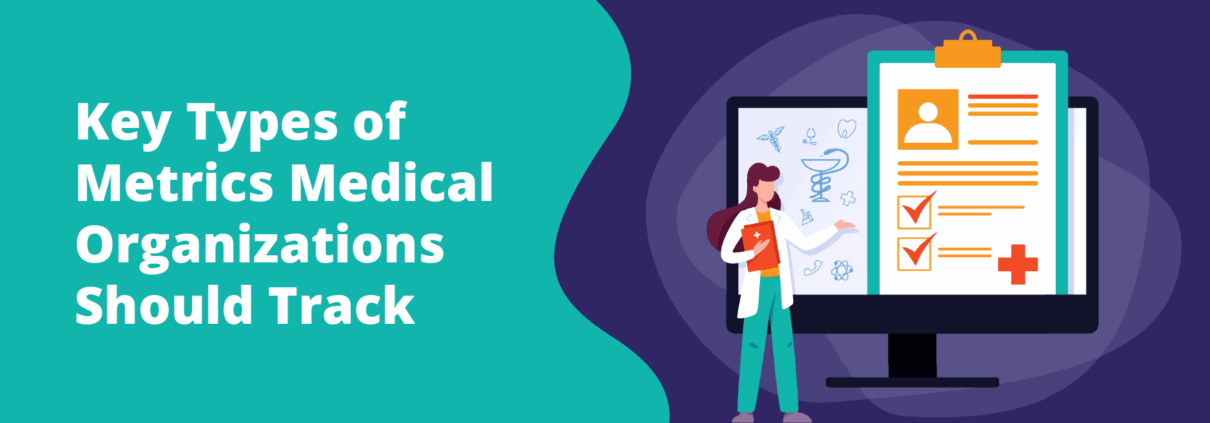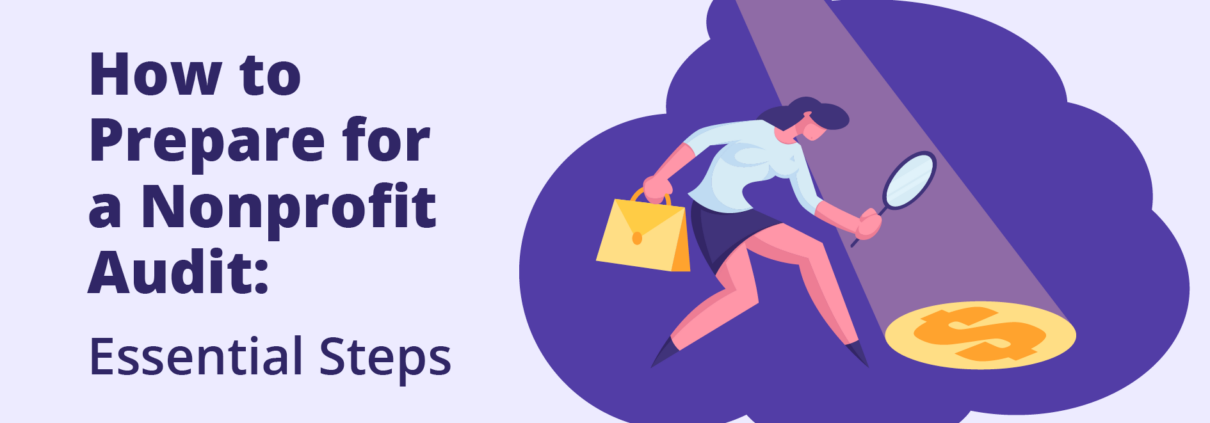4 Key Types of Metrics Medical Organizations Should Track
Medical organizations must be improvement-oriented to provide exceptional clinical care and patient experiences. The key to making impactful improvements that make a difference for your operations is data and analytics.
Every business identifies and tracks key performance indicators (KPIs) to measure how successful they are. The insights they glean from these metrics tell them what they’re doing right and where they can improve.
By tracking the right metrics, you can make smarter operational decisions and ultimately deliver more effective patient care. Let’s examine the most important categories of metrics that medical organizations should track and why they matter.
Clinical Quality Metrics
Clinical quality metrics help you measure whether your medical organization provides excellent clinical care. Metrics you might track that fall into this category may include:
- Preventive care compliance: Measures the extent to which patients take preventive health measures by receiving the recommended screenings and vaccinations on schedule.
- Average length of stay (ALOS): Assesses organization efficiency and care effectiveness, especially for inpatient services.
- Readmission rates: Evaluates the percentage of patients who return to the hospital within a given period.
- Medication error rates: Measures the percentage of patients who receive medications that are not in accordance with the prescriber’s order or the manufacturer’s specifications about medication use.
- Hospital-acquired infection (HAI) rates: Tracks infections that occur during hospital stays, helping to improve infection control and sanitation practices.
- Clinical documentation accuracy: Measures how well patient records reflect care provided, whether for one-time visits or chronic care.
These metrics help medical organizations meet regulatory and accreditation requirements and make internal improvements in care delivery. By monitoring these trends, you can make targeted changes to your organization’s infrastructure and processes that reduce complications and provide better care.
Plus, these metrics are a great way to demonstrate your accountability to patients and stakeholders. As UpMetrics explains, strong impact reports are built around both quantitative and qualitative data, so your organization may also consider conducting patient interviews or sending surveys to receive their feedback.
Patient Experience and Satisfaction Metrics
While clinical care effectiveness is essential, patients’ feelings about their care are just as important. If a patient is treated successfully but has a terrible experience with your staff members, this can greatly damage their trust in your healthcare organization.
To measure patient experience, track the following metrics:
- Net promoter score (NPS): Measures how likely patients are to recommend your practice to others, giving you a precise gauge of their overall satisfaction with their experience and your care.
- Patient retention rate: Tracks how often patients return to your practice, indicating loyalty and long-term satisfaction. This metric most applies to preventive healthcare appointments and measures, as these are expected to occur regularly.
- Average wait time and time to appointment: Refers to the amount of time until your next available appointment and the amount of time patients must wait after checking in before the appointment to be seen. On average, it takes patients 31 days to schedule doctors’ appointments, and 40% of patients say healthcare wait times are unreasonable.
- Online review scores: Refers to aggregated ratings from Google, Healthgrades, and other platforms that provide insight into public perception. Since the reviews are on a third-party site, thoughts and opinions here may be more honest.
- Complaints and resolution metrics: Measures the number of patient complaints and how quickly your organization addresses them, providing a view into patient concerns and responsiveness.
In addition to tracking these metrics, you can measure patient experience through patient surveys. One or two days after a patient visits your medical organization, send them a survey through email or text message with a mix of short answer and multiple-choice questions they can answer about their experience. Surveys help patients feel heard and respected while enabling you to make data-driven decisions that improve their overall experience.
Operational Efficiency Metrics
Running a smooth operation doesn’t just result in happier patients—it also makes life easier for your staff members. In a recent study, over 45% of physicians reported at least one symptom of burnout. As burnout leads to lower productivity and work dissatisfaction, lightening the workload on medical staff and boosting operational efficiency is key to providing a better workplace.
Operational metrics highlight inefficiencies that you can target for improvement. Here are a few examples:
- Patient throughput rate: Assesses how efficiently patients move through intake, diagnosis, treatment, and discharge.
- Appointment no-show rate: Measures the percentage of appointments patients fail to attend.
- Staff utilization: Tracks whether team members are overburdened or underused, enabling smarter workload distribution.
- Schedule density: Evaluates how fully booked providers are, providing insight into capacity planning and appointment availability.
- Room utilization rate: Measures how often exam or procedure rooms are in use, identifying opportunities to better manage physical resources.
- Average patient visit duration: Helps analyze provider efficiency and pinpoint areas where your organization can streamline appointments.
When you monitor these metrics with a robust practice management software solution, you can make better decisions for resource allocation, staff time management, and patient flow. Look for a comprehensive solution with features that increase operational efficiency, such as appointment scheduling tools and functionalities for managing and cleansing your data.
Financial Metrics
Financial metrics help medical organizations manage their finances and resources effectively and plan strategically for future growth and expansion. These indicators reveal how well your organization generates revenue, manages costs, and sustains profitability:
- Operating margin: Reflects the percentage of revenue remaining after operating expenses, giving a snapshot of overall profitability.
- Revenue per encounter: Measures the average revenue generated for each patient visit, helping assess billing efficiency.
- Cost per encounter: Calculates how much is spent per patient visit, allowing organizations to identify inefficiencies and areas for cost reduction.
- Patient payment rate: Measures how often and quickly patients pay their bills, helping identify barriers to collections.
- Accounts receivable days: Tracks how long it takes to collect payments, which affects cash flow and operational stability.
- First pass resolution rate: Measures the percentage of insurance claims that are successfully processed without the need for rework.
- Claim denial rate: Indicates the percentage of submitted insurance claims that are denied, highlighting potential coding or documentation issues.
- Appeals success rate: Tracks how often denied claims are successfully appealed, offering insight into payer relationship management.
- Average reimbursement rate by payer: Assesses the financial impact of working with different insurers, which supports contract negotiation decisions.
Streamlining financial management and billing operations is often challenging, and many medical organizations don’t know where to begin. These metrics will give you a good starting point for optimizing your process.
For instance, if you’re running into issues with insurance billing, your solution may be to outsource this work to a medical billing service to free up your time to focus on other revenue leaks. Or, you may take PracticeSuite’s recommendation and invest in medical billing software that streamlines the process and makes it easier for your staff members to handle.
Tracking the right metrics helps your organization run more smoothly and empowers you to deliver high-quality care. Whether you’re just beginning your data analytics journey or looking to refine your approach, focusing on key indicators in each area can provide the clarity you need to drive meaningful change. Determine your current priorities, whether that’s hiring, finances, or patient care, and set metrics for them that you can assess to shape a stronger future strategy.

